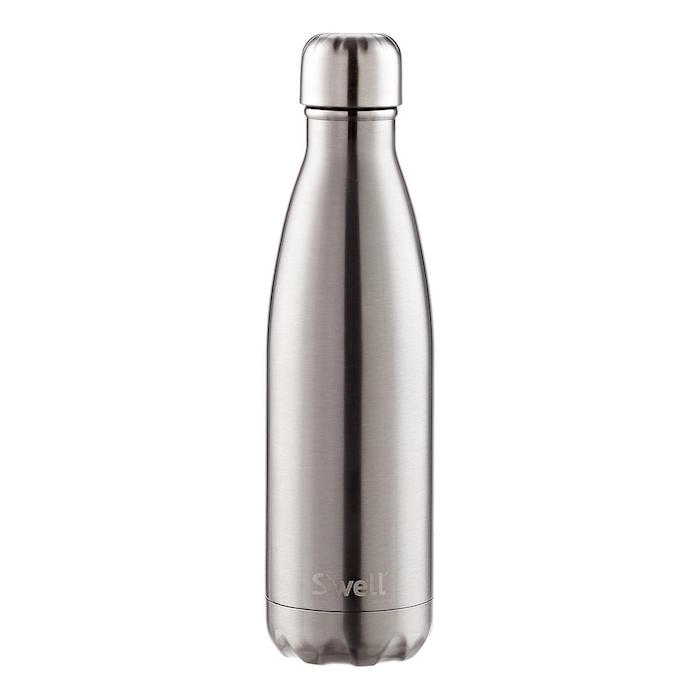A New Study Says Even Slight Dehydration Can Affect Your Brain—Here's How


Here's the thing: I don't drink enough water. I never have—even throughout high school and college. I know that's unhealthy, to say the least, which is why one of my big New Year's intentions for 2018 was to drink more water. It's easier said than done, though, especially when my brain is occupied with a variety of priorities during a workday. There's also the whole coffee thing. By that I mean the deep and passionate love I have for the two to three cups of coffee I enjoy per day. Again, I realize how unhealthy a minimal-water, high-caffeine habit is, but like I said, I'm trying to change it.
So the latest research on dehydration is just the motivation I need to ditch my non-water-drinking ways forever. According to a new study conducted by Cogstate, a leading cognitive science company, even slight dehydration is associated with inhibited brain function, which can lead to poorer or slower work performance.
Here's how researchers conducted the study. Twelve women came into the facility three days in a row. The first day was the baseline, and researchers measured participants' hydration levels, cognition, sensory perception, and emotional states. The next day, half the women drank the recommended amount of water (91 ounces) while the other half restricted their water intake. In other words, half were hydrated and half were dehydrated. The same tests were taken. The next day, the groups flipped—those that originally drank the recommended amount of water were restricted, and those that were originally restricted drank 91 ounces.
The results spoke for themselves. Significant changes in cognition were seen in the dehydrated groups of women. After rehydration, the measurements returned to normal. "Our primary findings were that while healthy, active women maintained body water during activities of daily living, when we induced mild dehydration these subjects increased errors on complex cognitive tasks that measure memory and learning during these same activities," the study's authors wrote. "Importantly, when we controlled hydration to meet IOM standards, women restored performance on these same cognitive tests compared to dehydration, and even improved performance on the test that measured cognitive flexibility."
This shows us just how important hydrating is. Aside from helping digestion and complexion, water can ensure a productive and efficient workday, which is something we all crave. The moral of the story is hydrate more—I know I will. Please excuse me while I refill my water bottle.
Disclaimer
This article is provided for informational purposes only and is not intended to be used in the place of advice of your physician or other medical professionals. You should always consult with your doctor or healthcare provider first with any health-related questions.

Kaitlyn McLintock is a Beauty Editor at Who What Wear. She has 10 years of experience in the editorial industry, having previously written for other industry-leading publications, like Byrdie, InStyle, The Zoe Report, Bustle, and others. She covers all things beauty and wellness-related, but she has a special passion for creating skincare content (whether that's writing about an innovative in-office treatment, researching the benefits of a certain ingredient, or testing the latest and greatest at-home skin device). Having lived in Los Angeles, California, and Austin, Texas, she has since relocated back to her home state, Michigan. When she's not writing, researching, or testing beauty products, she's working through an ever-growing book collection or swimming in the Great Lakes.
-
 Ava Phillippe on Her "Fantasy" Brunette Era and the $12 Lip Stain She Bought After Billie Eilish
Ava Phillippe on Her "Fantasy" Brunette Era and the $12 Lip Stain She Bought After Billie EilishRead our Unfiltered chat.
By Jamie Schneider
-
 I'm an NYC-Based Shopping Editor, and I Always Shop My Favorite Emerging Brands at This One Cool Retailer—See My Picks
I'm an NYC-Based Shopping Editor, and I Always Shop My Favorite Emerging Brands at This One Cool Retailer—See My Picks"It's pronounced essence."
By Audry Hiaoui
